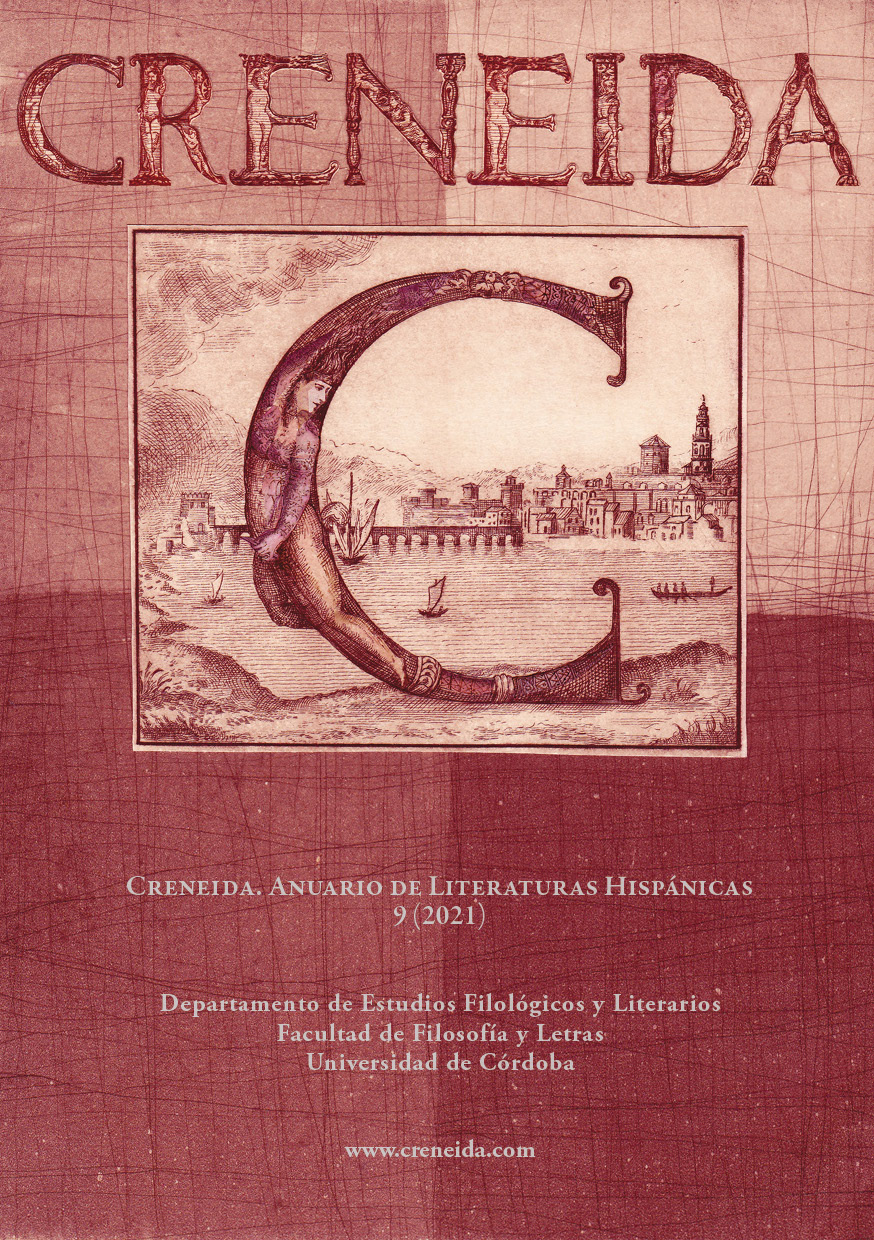Ambiguity avant toute chose: Humour and Re-writing in José Sanchis Sinisterra’s drama
Main Article Content
Abstract
Starting from the ideas of border and ambiguity, fundamental in the dramatic aesthetics of José Sanchis Sinisterra (Valencia, 1940), this essay aims at analyzing how humour -based on Pirandello's "feeling of the opposite" and on the closeness of the comic and the tragic as a consequence- shows itself in five significant plays by the author. They are the following: Ñaque (1980), ¡Ay, Carmela! (1987), Atajo (in Terror y miseria en el primer franquismo, 2002), Mísiles melódicos (2004) and Vagas noticias de Klamm (2009). Sanchis's bitter smile or laugh applies to serious or even tragic topics (the actor's difficult life, The Spanish civil war, Franquism, the world's inequality, unemployment) in the above-mentioned works, which are borderline as far as their genre is concerned as well. In fact, most of them are playful hypertexts using forms typical of pastiche, parody and caricature, both on a thematic and (above all) stylistic level, with the purpose of expressing the blurred and ambivalent nature of human experience.
Downloads
Publication Facts
Reviewer profiles N/A
Author statements
- Academic society
- Creneida. Anuario de Literaturas Hispánicas
Article Details

This work is licensed under a Creative Commons Attribution-NonCommercial-NoDerivatives 4.0 International License.
Avisos de derechos de autor propuestos por Creative Commons
1. Política propuesta para revistas que ofrecen acceso abierto
Aquellos autores/as que tengan publicaciones con esta revista, aceptan los términos siguientes:- Los autores/as conservarán sus derechos de autor y garantizarán a la revista el derecho de primera publicación de su obra, el cuál estará simultáneamente sujeto a la Licencia de reconocimiento de Creative Commons que permite a terceros compartir la obra siempre que se indique su autor y su primera publicación esta revista.
- Los autores/as podrán adoptar otros acuerdos de licencia no exclusiva de distribución de la versión de la obra publicada (p. ej.: depositarla en un archivo telemático institucional o publicarla en un volumen monográfico) siempre que se indique la publicación inicial en esta revista.
- Se permite y recomienda a los autores/as difundir su obra a través de Internet (p. ej.: en archivos telemáticos institucionales o en su página web) antes y durante el proceso de envío, lo cual puede producir intercambios interesantes y aumentar las citas de la obra publicada. (Véase El efecto del acceso abierto).





